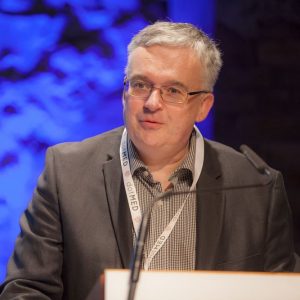Dr Muiris Houston, Masters in Medical Humanities (U Syd), Adjunct Prof Narrative Based Medicine, Trinity College Dublin.
Dr Muiris Houston’s personal website: https://muirishouston.com/about/

Much has been written about patient emotions in healthcare. It is a prime focus of narrative medicine as espoused by Charon and the discipline of narrative based medicine proposed by Greenhalgh and Hurvitz.
But there is another side to the equation: healthcare professionals – being human – have emotions too. Many of these emotions feature in doctor’s and nurse’s interactions with their patients. We share the joy of patient’s achievements and their relief when clinical tests are reported as normal. We share their frustration at delays in appointments for urgent investigations and the repeated cancellation of necessary surgeries. And of course we share their sadness as life’s vicissitudes seem insurmountable and patients’ options narrow.
As clinician burnout is increasingly recognised, the issue of guarding against the possible negative effects on doctors of their emotions has come to the fore. Risk factors for clinician burnout include: not having the personal resources to deal with the tsunami of pain and suffering they must deal with every day; placing a higher value on cognitive over emotional attunement; a lack opportunities to ‘metabolise’ painful experiences; and an emphasis on unhelpful coping mechanisms as doctors try to deal with emotional overload.
The term “professional grief” refers to unexpressed and unacknowledged losses from our professional lives. Granek et al (2012) note that the culture of medicine can contribute, as do limited and inappropriate coping strategies. This leads to bereavement overload, a sense of personal failure and isolation with spillover to our personal lives.
While there is some disagreement on the role resiliency has in healthcare, proponents say that those who are resilient allow themselves to be changed by the experience of adversity. In other words being resilient is not to avoid difficulty but to play an active role in how difficulty transforms you.
What can physicians and others do in day-to-day practice to protect themselves? Taking the opportunity to slow down and reflect helps; finding healthy ways to express what we have experienced is useful as is finding a connection to our values and the community we live in.
Does narrative based medicine offer an antidote to burnout? Feeling that you are of use in a difficult situation and that being there made a difference will undoubtedly help. Certainly, those who have developed a narrative competence and narrative skills find them helpful in protecting themselves from a sense of depersonalisation and other burnout symptoms.
Writing in the Canadian Family Physician in 2012 about useful strategies for practising narrative-based medicine, Allan Peterkin offered the following advice:
“The next time you are troubled by a patient encounter, take 3 minutes to write down what happened. Write it the way you would tell a colleague – as a story with a beginning, middle, and end. Writing it down on the page will give you the distance to see how your own story (expectations, time pressures, unresolved grief) has collided with your patient’s. Most people are surprised by how much of a story emerges in only 3 minutes and how it can facilitate personal reflection.”
Beyond reading and writing, there are other ways to reflect constructively. Dr Heather Patterson, emergency medicine specialist and photographer, looking back at the challenges of the SARS- CoV- 2 pandemic, says it was “through my camera lens that I was able to slow down and observe the shared human experience of the pandemic: tragedy and vulnerability; kindness and compassion; laughter and tears; teamwork and resilience.”
As someone who was taught early on in my career to offer a form of ‘circumscribed empathy’ to my patients – a type of one-off support to be offered when breaking bad news – the unspoken message was not to expose yourself in any ongoing way to your patient’s emotions.
The problem with this approach is that your unresolved emotions-often mixed with those of your patient-build up over time. Without reflection, and bottled up over time, it can hurt you professionally and personally.
Burnout has too many contributory factors for reflective narrative based medicine to be an all-healing panacea. But reflective practice, whether through writing, reading, music or visual cues, is a powerful tool. It is simple, doesn’t take long and makes you a more reflective clinician. It’s a life-long habit well worth developing.
* I wish to acknowledge the assistance of Karen Gold of the Narrative Based Medicine (NBM) Laboratory at CPD Temerty Faculty of Medicine, The University of Toronto, Canada, in writing this viewpoint.
References:
- Granek L, Tozer R, Mazzotta P, Ramjaun A, Krzyzanowska M., Nature and Impact of Grief Over Patient Loss on Oncologists’ Personal and Professional Lives, Arch Intern Med. 2012; 172 (12): 964–966.
- Peterkin, Allan. Practical strategies for practising narrative-based medicine, Canadian Family Physician, 2012.
